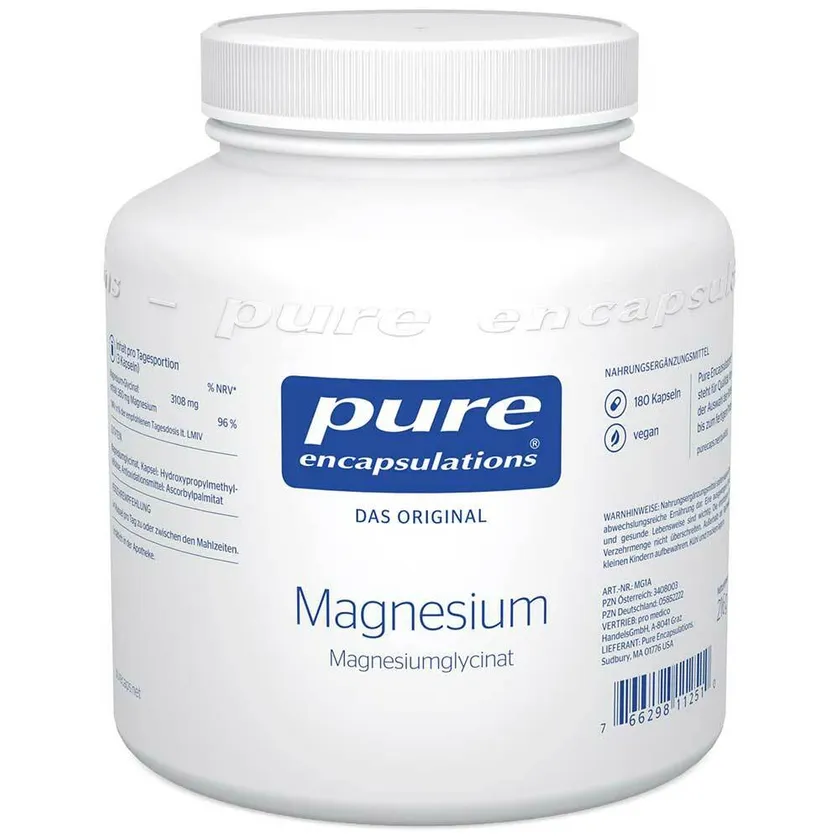
You may have heard of magnesium before, but what exactly is it? Is it something you should get more of in your diet? What about supplementation? In today’s post, I am going to share with you what magnesium is, the benefits, signs of deficiency, and my personal experience with it.
What is magnesium?
Magnesium is a mineral with many functions in the body. It helps support heart health, nerve and muscle function and healthy bones. Over 300 enzymes use magnesium for a variety of essential processes in the body every single day. Needless to say, it’s an important one!
Magnesium is found naturally in many foods but can also be taken as a supplement or topically as creams and gels for muscle relaxation. The amount of magnesium that you need per day depends on your age, sex, and life stage you’re at, such as pregnancy. But generally about 300-400mg/day is the recommended amount. Others may require more if there are any issues with digestion and absorption of nutrients.

Food Sources of Magnesium
Magnesium is found naturally in many foods:
- nuts and seeds like pumpkin seeds, Brazil nuts, almonds and sunflower seeds
- dark leafy greens like spinach and Swiss chard
- whole grains
- legumes like black eyed peas and edamame
- potatoes with the skin on
- and even dark chocolate!
Magnesium Deficiency
Unfortunately, it’s not uncommon to be low in this vital nutrient due to diets that lack magnesium-rich plant foods. Additionally, high consumption of alcohol, coffee, phosphoric acid found in sodas, salt, and even stress can deplete this mineral in our body. Those with digestive disorders, diabetes, athletes and older adults may be at higher risk of magnesium deficiency.
Possible signs of magnesium deficiency can include:
- muscle cramps, pain, or spasms
- joint pain
- headaches or migraines
- insomnia
- anxiety
- hypertension (high blood pressure)
- depression
- constipation
- hypothyroidism
Benefits of Magnesium
Heart health: magnesium promotes healthy blood pressure. Those with hypertension and even arrhythmias can benefit from getting optimal amounts of magnesium in their diet.
Bone health: we all know calcium is needed for healthy bones, but not just calcium alone. We need a dance of calcium, magnesium, vitamin D and other minerals to support bone health. Up to 60% of magnesium is stored in our bones. If you’re at risk for low bone density, you’ll want to pay attention to your magnesium and overall mineral intake.
Muscle relaxation: Magnesium is best known for having muscle relaxing properties, making it useful for things like cramps (including period cramps), spasms, or restless legs. Since cramps can be a sign of deficiency in some cases, increasing your intake of this mineral can make a difference in the muscle pain you experience.
Sleep: Magnesium is great for aiding sleep because of its calming and relaxing properties. Many people find that increasing their intake of magnesium helps improve sleep quality and quantity. This may be due to the way that magnesium mitigates stress and anxiety. Try an Epsom salt (magnesium sulfate) bath in the evening to help with a good night’s sleep. Not only with the warm water relax your body, but the addition of magnesium may help, too.
Constipation: Magnesium in the form of a citrate supplement helps draw water into the bowels and soften stool which can relieve constipation.
PMS: Premenstrual syndrome involves a variety of uncomfortable symptoms in the days leading up to your period, like cramps and breast tenderness. Magnesium plays a key role in relaxing muscles and also reducing inflammation, which is why it can be massively helpful for those who suffer from PMS. I have personally found magnesium to make drastic improvements in my PMS symptoms.
Migraines: Like most health issues, migraines are multifactorial but low levels of magnesium can play a role. Stress and dehydration can also play a role here, but upping your dietary intake of magnesium may be helpful for you if you suffer from migraines.
How to get more Magnesium + should you take a supplement?
Food should be the primary focus when it comes to obtaining adequate nutrition. You can start increasing your magnesium intake naturally by…
- adding more legumes to your diet through salads, soups, or stews
- adding nuts to baked goods, as a snack (like trail mix), or onto oatmeal or granola
- enjoying a spoonful of nut butter, like almond or cashew, with fruit, toast, or in smoothies
- eating more leafy greens.
- choose whole grains products instead of white
To fill in the gaps or for those who need higher amounts of a specific nutrient, supplementation can be helpful. Speak to your doctor if you have any questions about taking a new supplement.
My Experience

I am very happy with PURE Magnesiumglycinat and take up to two pills every second day and I feel that my overall levels of magnesium have improved.
Please keep in mind that this is my unique anecdotal experience which means that it’s based on personal accounts and not part of any sort of rigorous scientific study. Everybody’s needs are very different. Always speak to your doctor if you have any concerns about any symptoms you are experiencing.